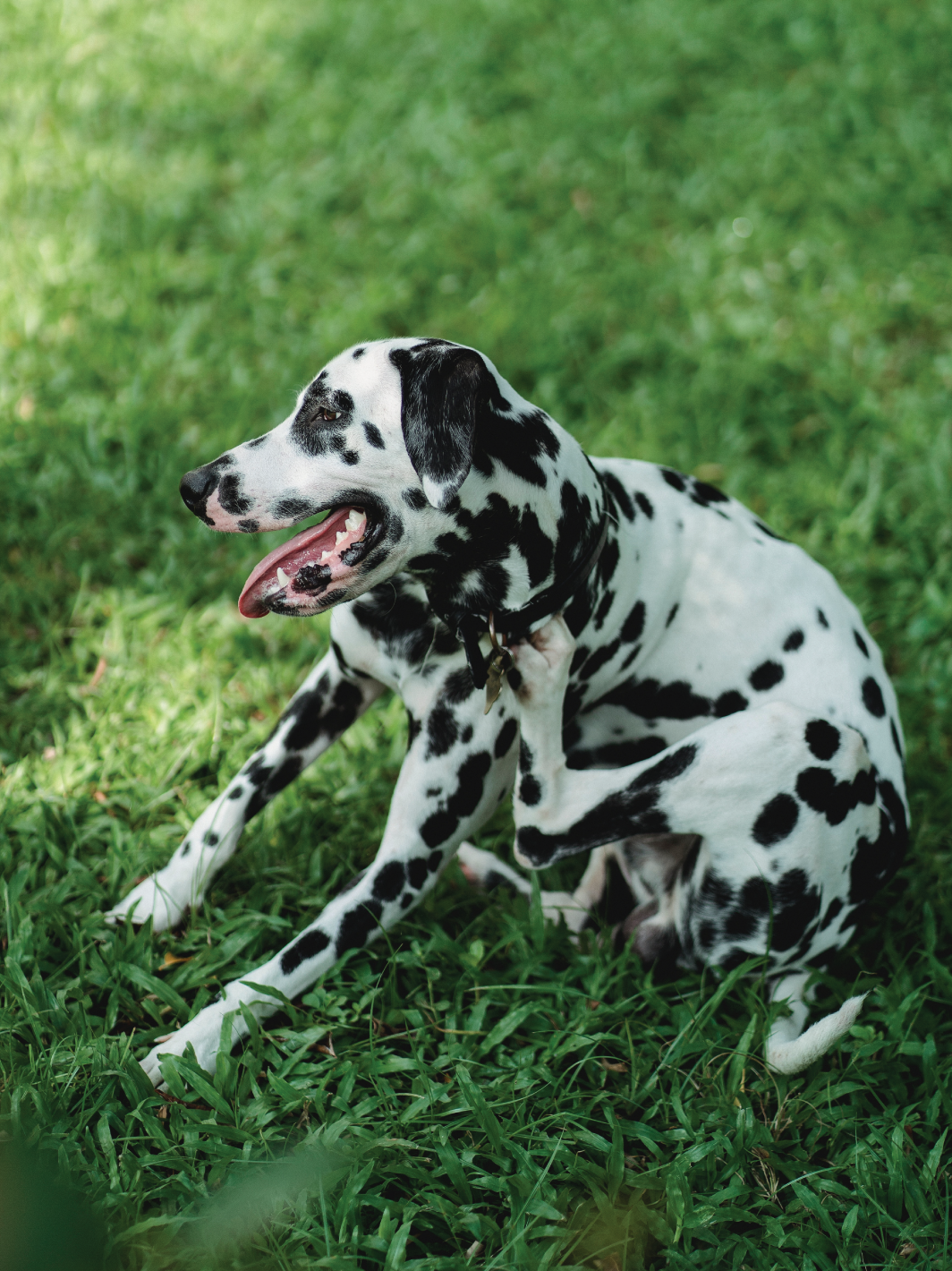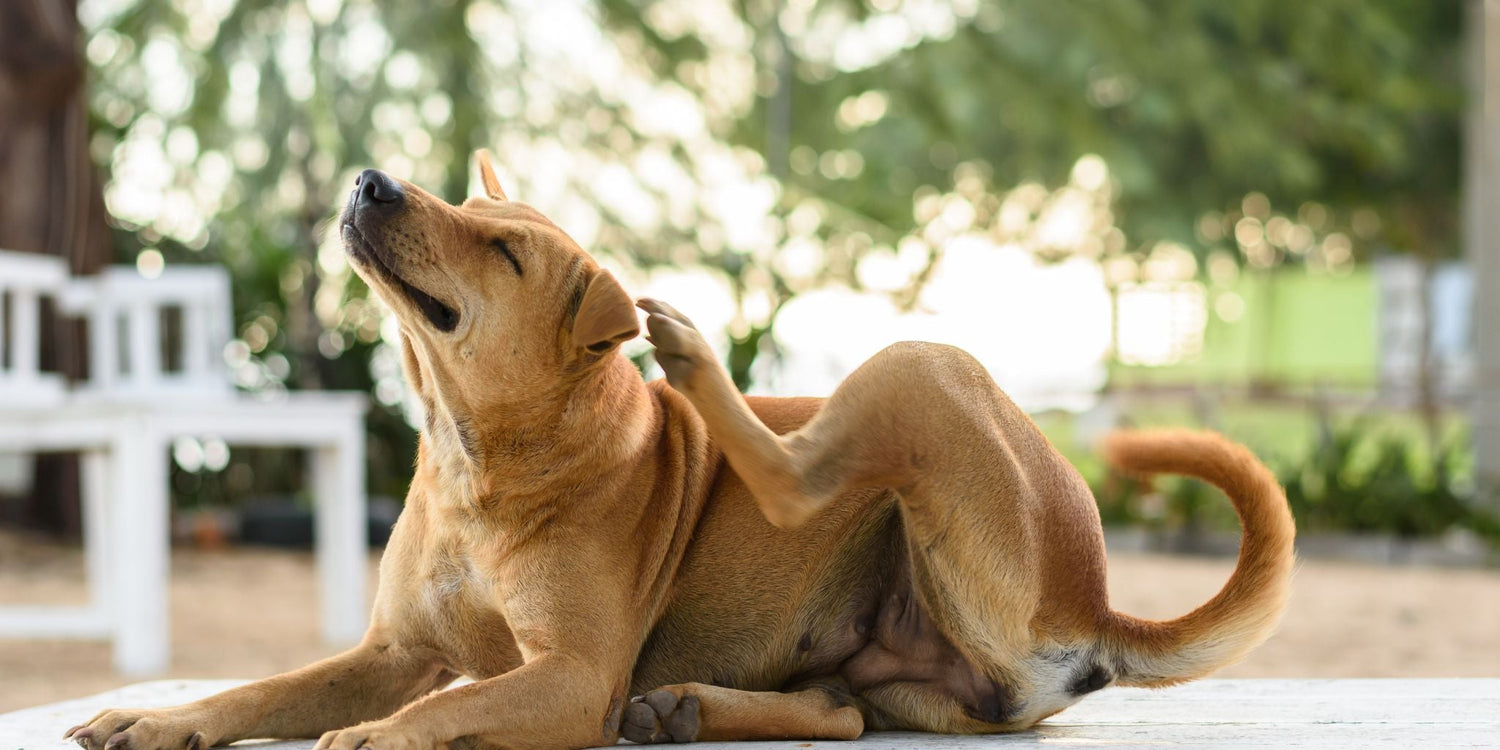
Does Your Dog Have Dry Skin? Tips for Identification and Care
Just like humans, dogs can also experience dry skin, which can lead to discomfort and various health issues if left untreated. If you've noticed your furry friend scratching excessively, having a dull coat, or showing signs of irritation, it might be an indicator of dry skin. In this blog post, we'll explore the common causes of dry skin in dogs, how to identify the symptoms, and offer some effective tips for managing and preventing this condition.
Common Causes of Dry Skin in Dogs:
-
Weather Conditions: Changes in weather, especially during colder months, can cause dryness in your dog's skin. Low humidity levels can strip their skin of moisture, leading to itching and flakiness.
-
Improper Grooming: Over-bathing your dog with harsh shampoos or bathing too frequently can strip the natural oils from their skin, causing it to dry out. Using human shampoos can also disrupt their pH balance and lead to skin issues.
-
Allergies: Just like humans, dogs can be allergic to various environmental factors such as pollen, dust mites, or certain types of foods. Allergic reactions can manifest as dry, itchy skin.
-
Poor Diet: A lack of essential fatty acids and nutrients in your dog's diet can impact the health of their skin and coat. Omega-3 fatty acids play a crucial role in maintaining healthy skin and can alleviate dryness.
-
Parasites: Fleas, ticks, and mites can irritate your dog's skin and lead to dryness and itching.
Identifying Dry Skin in Dogs:
-
Excessive Scratching: If you notice your dog scratching more than usual, it could be a sign of dry skin. Persistent scratching can cause further irritation and even lead to secondary infections.
-
Flakiness and Dandruff: Check your dog's coat for flaky, dry skin that resembles dandruff. This can often be seen on the back, base of the tail, and around the ears.
-
Dull Coat: A healthy dog coat should be shiny and soft. If you notice your dog's coat looking dull or rough, it might be an indication of dry skin.
-
Redness and Irritation: Dry skin can lead to redness and irritation, especially in localised areas.
Tips for Managing and Preventing Dry Skin:
-
Use a Moisturising Shampoo: Opt for a mild, moisturising dog shampoo that is specifically formulated for dry skin. Avoid using human shampoos as they can disrupt your dog's pH balance. Check out our Soothing & Conditioning Shampoo.
-
Regular Brushing: Brushing your dog's coat regularly helps distribute natural oils and improves circulation, which can contribute to healthier skin.
-
Balanced Diet: Ensure your dog's diet is rich in essential fatty acids and nutrients.
-
Supplements: Omega-3 fatty acid supplements can improve skin health and reduce inflammation. The Field Day team consulted with Vet Nutritionists to create the perfect Omega Oil supplement for ensuring your pup's skin and coat are in peak condition, Skin & Coat Support Omega Oil.
-
Humidifier: If you live in a dry climate, using a humidifier in your home can help maintain a comfortable level of humidity for your dog's skin.
-
Flea and Tick Prevention: Regularly use flea and tick prevention methods to avoid infestations that can lead to skin irritation.
-
Allergy Management: If you suspect allergies are the cause of your dog's dry skin, work with your veterinarian to identify the allergen and develop an appropriate management plan.
Remember, if your dog's dry skin persists or worsens despite your efforts, it's essential to consult a veterinarian. They can accurately diagnose the underlying cause and provide tailored treatment recommendations to ensure your furry companion's skin stays healthy and comfortable.





